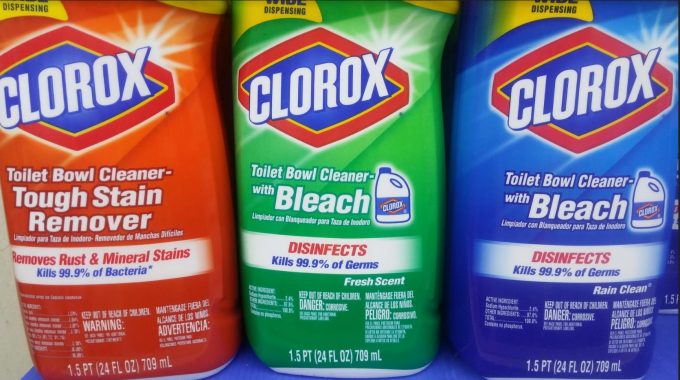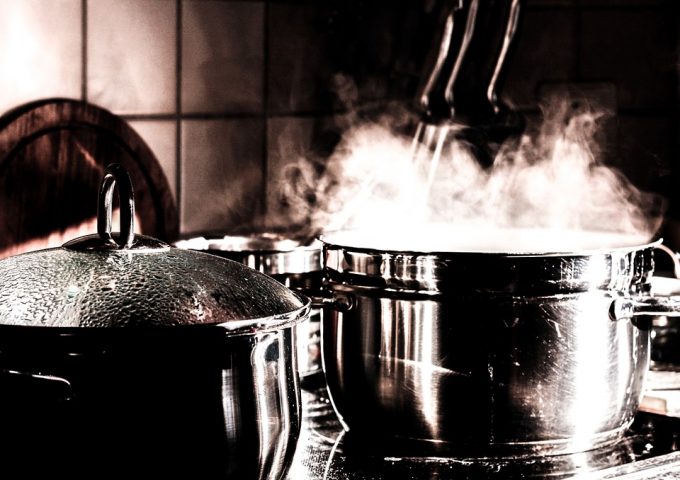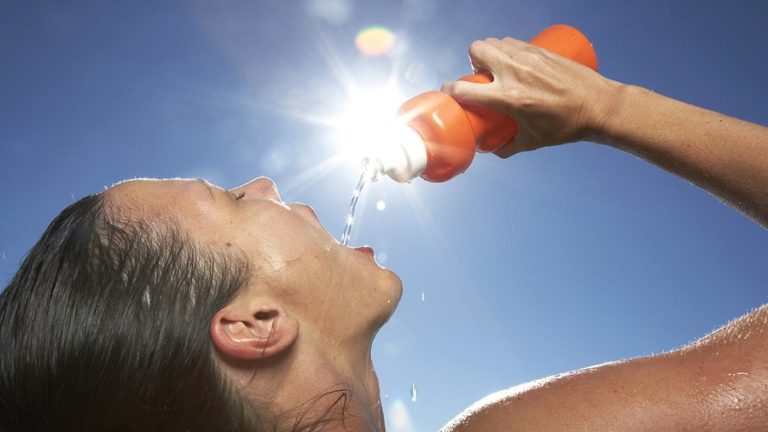How to Make Alkaline Water: Get the Most Out of Drinking Water
Water is the life force that keeps our bodies running. You have probably learned a lot about its numerous health benefits and the importance of staying well-hydrated. If you are interested in receiving the most out of drinking water and mineralize your body, this guide on how to make alkaline water is the right solution for you.
Whether you are after boosting your metabolism, slowing down the aging process, or simply want to alkalize your body and prevent diseases, alkaline water will offer you lots of benefits. From water ionizers to ionizing filters to baking soda treatment, there are various ways for you to alkalize water right at your home.
To help you get going, we have prepared this guide on alkaline water. Check it out and discover what the hype is all about, what makes this type of water so beneficial, and how you can prepare it yourself.
What is Alkaline Water?
If you heard a lot about alkaline water benefits, you surely want to understand what the hype is all about. First of all, the pH is the one that determines whether the water is acidic or alkaline. The pH of 7 is deemed neutral while anything below that is acidic and anything above it is alkaline. In other words, the lesser the pH, the more acidic the liquid is, and the higher the pH, the more alkaline the water.
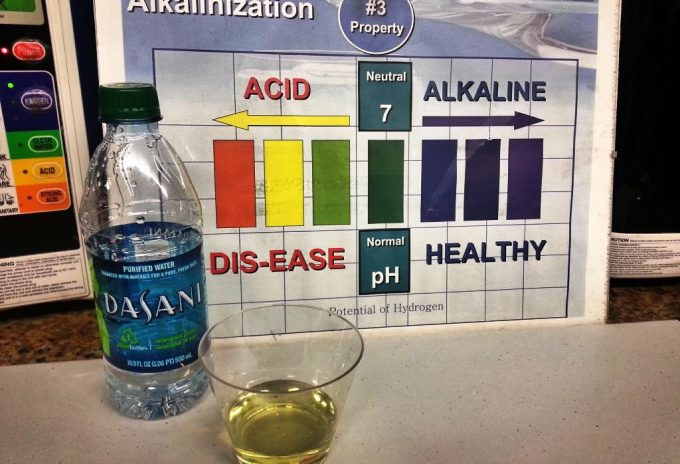
Alkaline water is rich in alkaline compounds such as potassium, calcium, magnesium, silica, and bicarbonate. The appropriate pH level of alkaline water that is fit for drinking is typically within the range of 8.0 – 9.0. Drinking water with a pH above 9.0 is not suggested as it may result in making the alkalinity levels in the body too high which can have adverse effects.
Tap water, on the other hand, is usually slightly acidic due to the process of disinfection and distribution. Too much acid in our body may lead to various health conditions. These can be countered by regularly drinking alkalized water in proper amounts.
Reasons Why You Should Drink Alkaline Water
Despite the fact that the topic of alkaline water is very controversial, some things are clear. For most of us, our diet consists of lots of processed foods rich in sodium and sugar that are playing with the pH of our bodies. As a result, there is too much acid in the body that can lead to severe health conditions. One of the best methods to counter the acidic state of the body is to stabilize the pH levels by consuming alkaline water.
According to recent research, alkaline water has been found beneficial to people experiencing heartburn, acid reflux, diabetes, high cholesterol, and high blood pressure.
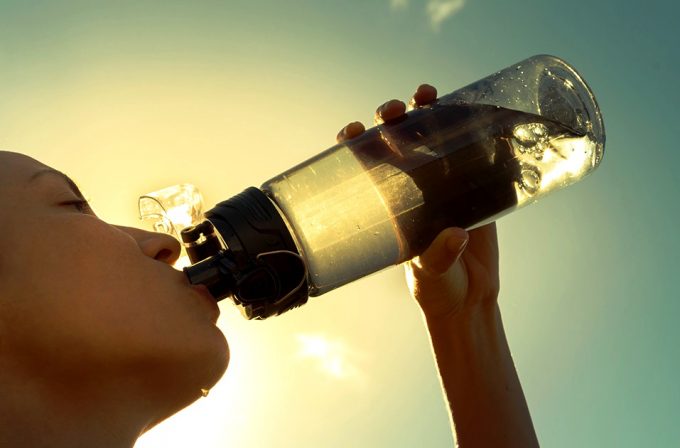
It is also believed that alkaline water provides other health benefits including:
- Immunity boost: As it is rich in antioxidants, drinking alkaline water can boost your immune system and prevent diseases such as cold, flu, and even cancer.
- Improved digestion: Excess acidity may result in conditions such as heartburn, acid reflux bloating, and indigestion. By consuming alkaline water, you can neutralize its effects and support healthier digestion and weight loss.
- Anti-aging properties: Alkaline water is an excellent antioxidant that is negatively charged. This means that it can fight the free radicals and help in preventing diseases as well as slowing down the aging process.
- Better hydration: As its molecules are small, alkaline water is quickly absorbed by the body cells, resulting in sufficient hydration.
Maintaining stable pH levels is key to success. While alkaline water can significantly help your body, it can also lead to negative results if you overdose on it. In general, the limit of 3 – 4 glasses of alkalized water per day shouldn’t be exceeded. The amount, of course, may vary from person to person.
How to Make Water Alkaline
If you are interested in learning how to make water alkaline, you will need to know how to measure the pH levels of water. Remember that alkaline water ideal for drinking has a pH of 8.0 – 9.0 and shouldn’t exceed these standards. If you know the pH of your water before and after you alkalize it, you will be able to adjust your methods accordingly to ensure reaching the required pH levels.
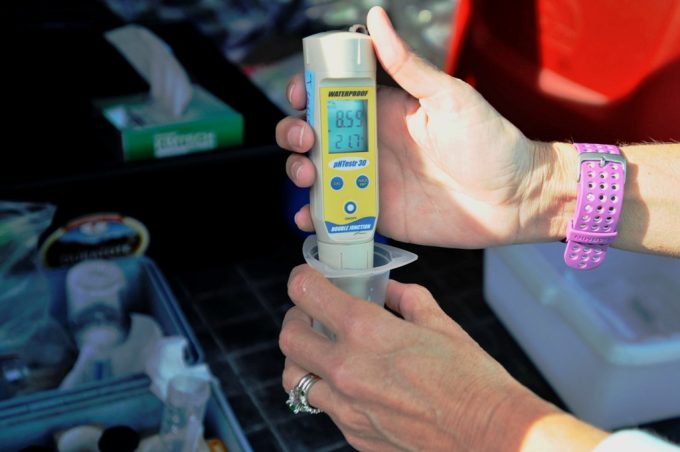
You can measure the pH of water by using pH strips. Remember the experiments during the chemistry classes in primary school? This works the same way. You can easily buy the strips online, at local drug stores, or health & food shops. They won’t cost you much and will come with instructions on how to measure the pH levels.
What Kind of Water to Use?
The water that you should use in the process has to be clean and free of germs, heavy metals, and other pollutants. You are suggested to use pure distilled water or water that has passed through advanced filtering systems such as reverse osmosis. Even though tap water is often potable, it may contain high levels of pharmaceutical drugs’ residues of chlorine due to disinfection.
Baking Soda
As a naturally occurring alkaline mineral, baking soda makes an excellent solution on alkalizing water. Make sure that your health allows you to use this technique. If you are currently on a low-sodium diet, you should avoid this method.
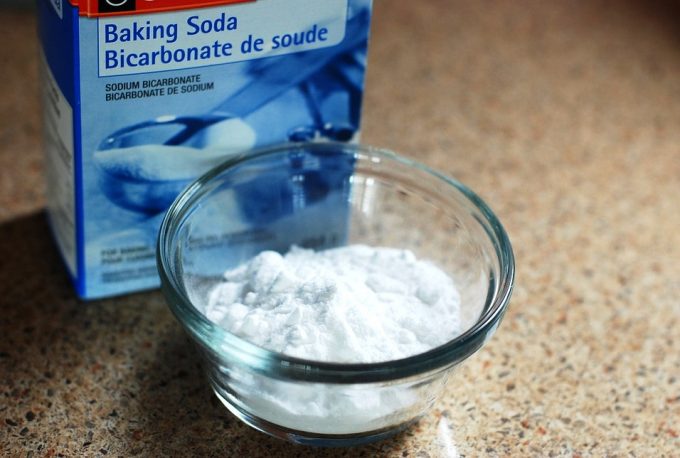
Baking soda can be found online or in nearly any food store at an affordable price. If you use it with water that has neutral pH, these amounts will probably fit you best:
- 1/8 tablespoon (600 mg) of baking soda per 8 ounces (230 milliliters) of water.
- 1/2 tablespoon (2.4 g) of baking soda per 4 cups (1 liter) of water.
After you add baking soda to the water, shake it well. It is suggested that you use a shaker or a bottle to do that. Wait for the baking soda to dissolve entirely then test its pH.If the pH is between 8.0 and 9.0, the water is ready for drinking. When it remains below 8.0, you can add additional baking soda to make it more alkaline.
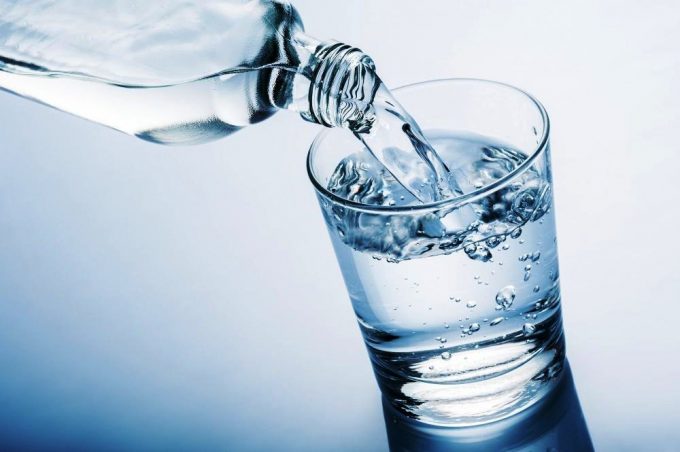
If you have added too much baking soda to the water and made it too alkaline, you can reverse the effects by adding small amounts of distilled white vinegar. It has a very acidic nature that will help you reduce the pH levels of water without changing its color or taste.
Benefits of using baking soda for alkalizing water:
- Extremely cheap
- Easy to apply/use
- Completely natural ingredient
- Reliable performance
Caution: Alkalizing water with baking soda has numerous benefits. Nevertheless, caution should be taken not to exceed the limits. Make sure to test the water for its pH before drinking it. Also, make sure to decrease your sodium intake from other sources if you intend to drink water alkalized by baking soda regularly.
Lemon Juice
If you are wondering why we are mentioning lemon juice, you do so for a good reason. Lemon has a highly acidic nature but when consumed your body reacts to its anionic properties. This results in alkalizing the water as it is being digested.
For best effects, drink lemon water no more than three times per day, preferably in the morning and before lunch and dinner. You can use prepared lemon juice, but it is best if you squeeze fresh lemons. One lemon is sufficient for alkalizing two glasses of water.
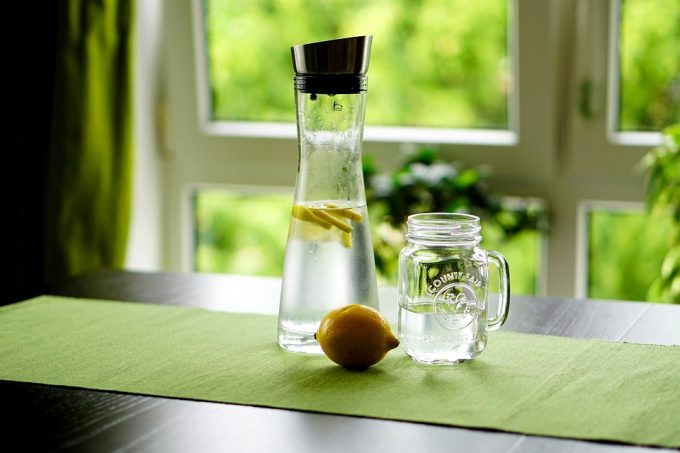
Alternatively, you can also follow these steps:
- Slice two lemons into small pieces and place them in a 64 oz. (2-liter) pitcher. Make sure that you thoroughly wash the lemons before cutting them.
- Proceed to fill the pitcher with water and cover it.
- Let the lemons soak in for around 16 hours at room temperature.
- If you wish to mineralize your water, add a teaspoon of Himalayan salt and mix well.
Once your drink is ready, it will not only help you stay well-hydrated but also provide you with a good source of potassium and calcium. Again, drink this beverage moderately. Drinking too much of it will over-alkalize your body and result in negative consequences.
The Use of pH Drops
Adding pH drops presents another way on how to alkalize water. This technique may be more expensive than the previous two, but it is still quite affordable, considering the benefits that it offers.
pH drops are made of potent alkaline minerals that are present in great concentrations. As they are added to water, they immediately alkalize the water. All you have to do is shake it well so that it can spread throughout the water equally.
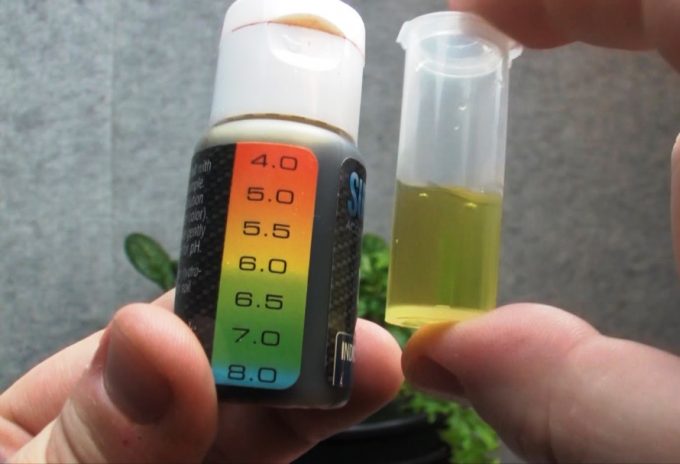
Make sure to read the instructions of the product carefully, as they may vary from item to item. Avoid overdosing to achieve desired results.Also, keep in mind that these drops don’t filter the water so make sure that you are using clean source for this purpose.
If you are interested in pH drops, check out pharmaceutical or online stores. The prices are ranging from $5 to $50 depending on the producer and the amount they offer. In general, you will spend somewhere around $5 – 10 per month if you intend to alkalize water with pH drops regularly.
Reverse Osmosis Water Filtration
This system can be installed at the water entry point or directly at the faucet. It is the most expensive solution for alkalizing the water but also offers other benefits. The reverse osmosis process thoroughly filters the water and strips it of all contaminants such as viruses, bacteria, pesticides, and heavy metals.
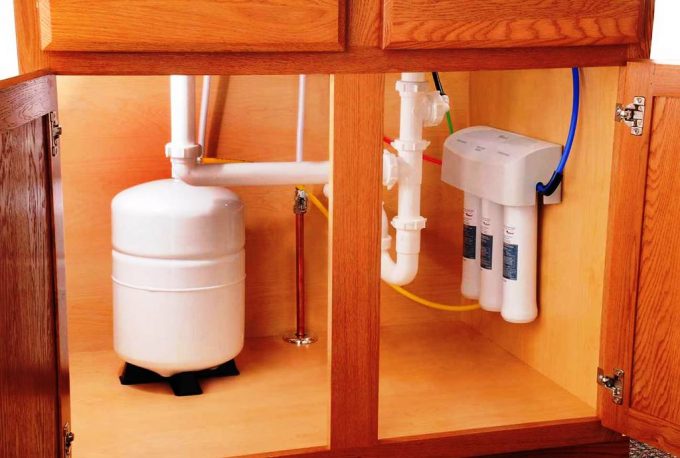
Sadly, this process also eliminates the minerals from the water which results in the dropping of the pH. Reverse osmosis water, therefore, isn’t alkaline. Nevertheless, since the water is pure, it can very easily be alkalized by remineralizing. This can be done by installing an additional remineralization cartridge in the system. After treatment, the water flows through this cartridge and is enriched with minerals such as calcium. This process makes it the purest and healthiest form of alkalized water.
How does reverse osmosis work?
Water is pushed through microscopic filter membranes under high pressure. This causes bigger molecules to stay behind while only hydrogen and oxygen can pass. The water also runs through an activated carbon filter that absorbs unpleasant colors and odors.
Water Ionizer
Investing in a water ionizer is another relatively expensive yet extremely effective method that will answer your question on how to alkalize water. Water ionizers can attach to the faucets and are very user-friendly.
At the first stage of treatment, water runs through an activated charcoal filter where it filters thoroughly. From there, it flows through an electrolysis chamber over negative and positive electrodes. As a result of electrolysis, water becomes electrically enhanced which leads to the separation of water into acidic (oxidized) and alkalized (ionized) water. Approximately 70% of the water that passes through the ionizer becomes alkaline and suitable for drinking.
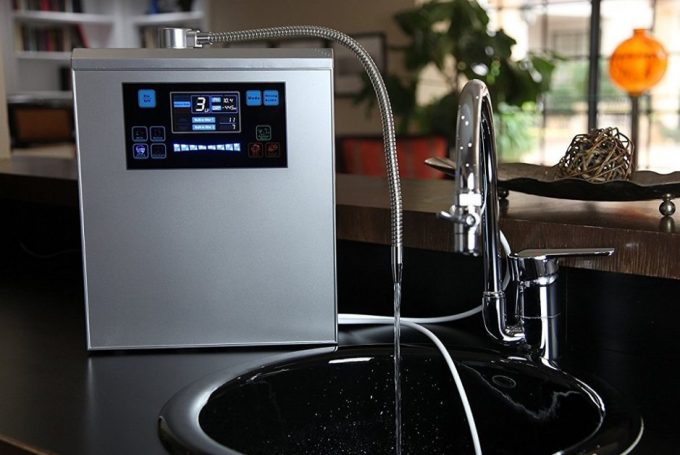
The other 30% represent acidic water that you shouldn’t drink. However, you don’t have to throw this water away. Instead, use it for washing your body. Its acidic nature will help you destroy the germs residing on your skin. Acidic water can also be used for cleaning the dishes and washing your hands.
If you decide to invest in a water ionizer, keep in mind that the device will likely occupy some of your space. You also have to be ready to deal with acidic water and maintain the device as needed.
Ionizing Water Filter
The process with ionizing water filters is the same as the one with water ionizers. Nevertheless, purchasing ionizing screens is much more cost-effective than investing in an electric ionizer. These filters are also very portable and easy to use.
In order to get them to work, you have to pour the water into the filter. While waiting for a few minutes, the water passes through a series of membranes and becomes alkalized.
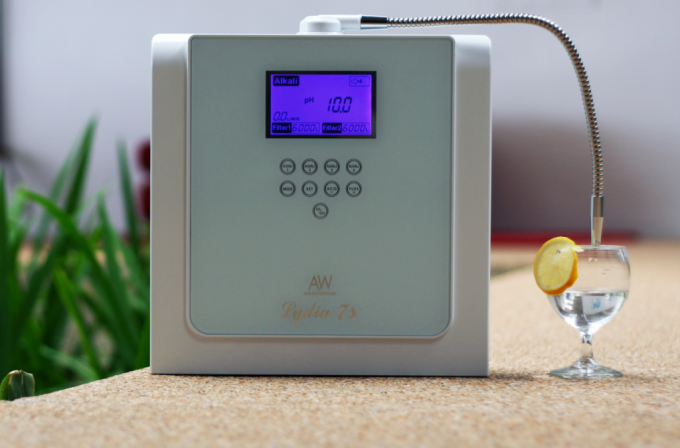
If you are interested in ionizing water filters, you can find them in most home improvement and kitchen appliances stores.
Potential Risks and Side Effects of Alkalized Water
Both acidic, neutral, and alkaline water come with their own advantages and disadvantages.
Acidity vs. Alkalinity
Too much body acid can lead to obesity, chronic inflammation, diabetes, weakened immune system, weight gain, slow digestion, high blood pressure, mood swings, and chronic fatigue. It can also result in joint pain, kidney and bladder issues, and sore muscles.

Excess alkalinity, on the other hand, may cause skin irritations, lowering of stomach’s natural acidity, and gastrointestinal issues. It can also lead to metabolic alkalosis, a health condition accompanied by the following symptoms:
- Vomiting
- Nausea
- Muscle twitching
- Confusion
- Hand tremors
Balancing pH
The answer to whether alkaline water may poses risk or not liesin proper balancing. Keep in mind that if you don’t drastically exceed the intake limits, alkaline water will do you no harm.
Some people also suggest that it is better to switch between drinking regular bottled or tap water for a week and drinking alkalized water for one week. Others claim that alkaline water is totally acceptable on a daily basis as long as it is made using baking soda or lemon juice instead of human-made machines.
Proceeding with a Plan
While lacking scientific proof, it is clear that consuming alkaline water in proper amounts doesn’t have negative impacts. It can, however, considerably help you stabilize the pH of your body and improve your overall functioning. It is up to you to find out how much alkaline water your body requires.

Remember to start small and see how alkaline water affects you. If you are feeling better, maintain your intake the same way you did. If you begin experiencing any side effects, then you should probably immediately lower your alkaline water consumption.
Final Thoughts
Water is the life force that keeps our bodies running, and we have to ensure that we are drinking healthy water. Alkaline water offers many health benefits for our bodies. It can help you mineralize your body, prevent diseases, boost metabolism, slow down the aging process, and stay well-hydrated.
If you are interested in making alkaline water at home, you will now have the ability to do so. From water ionizers to ionizing filters to baking soda treatment, there are various ways for you to alkalize water. Despite its numerous benefits, make sure to keep the boundaries in check. Avoid overdosing on alkaline water as it may lead to adverse consequences.
If you are drinking alkaline water, you probably already figured out what kind of effects it has on you. Please share your thoughts and experiences about this burning topic with us!



